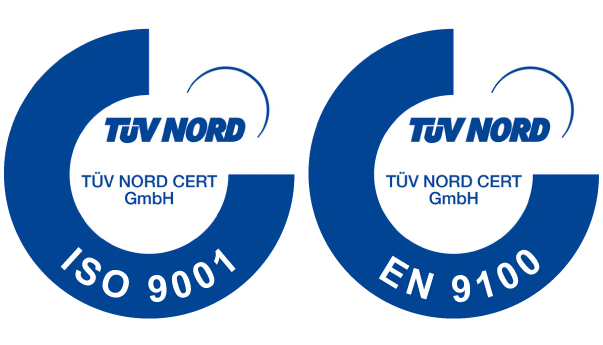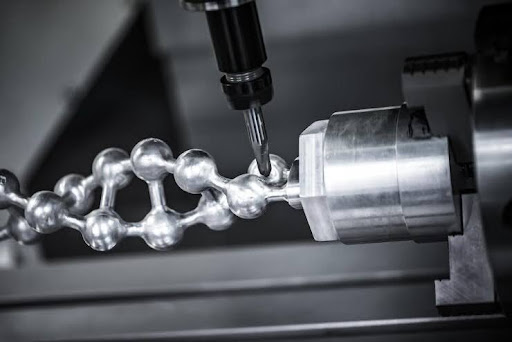The right material plays a crucial role in producing precision machining parts with high quality. The material directly affects the component’s performance, durability, and cost-effectiveness. With such a wide array of material choices, knowing which one to select for CNC machining can help the manufacturer achieve product specifications and functionality.
Understand the Application Requirements
The first consideration is to know the intended application for a particular component. Other significant considerations are mechanical strength, thermal resistance, corrosion resistance, and electric conductivity. For instance, aerospace applications necessitate lightweight and durable materials, while industrial machinery parts need high resistance to wear. Considering the conditions and environment will ensure that the selected material has the proper function.
Assess Mechanical Properties
Mechanical properties like strength, hardness, ductility, and toughness are vital in determining a material’s suitability. For precision machining parts, these properties must align with the part’s functional requirements. Metals like aluminum offer excellent machinability and moderate strength, making them ideal for automotive and aerospace parts. Stainless steel, known for its strength and corrosion resistance, is suitable for medical and food processing equipment. Titanium is used for its high strength-to-weight ratio in aerospace and medical implants.
Consider Machinability
Machinability has an important impact on production efficiency and cost. Easy-to-machine materials reduce tool wear, lower energy consumption, and short machining time. Therefore, aluminum is the most machinable metal, and stainless steel and titanium are very hard that require special tools and lower machining speeds. To achieve lightweight and corrosion-resistant parts, plastics such as ABS and PEEK are utilized because they are easy to machine for applications that demand such properties.
Analyze Thermal and Electrical Conductivity
Some applications require materials with certain thermal and electrical properties. Copper and aluminum are perfect for electrical parts because of their high conductivity. For parts exposed to high temperatures, stainless steel or heat-resistant alloys are used to ensure durability without performance compromise. This requirement helps in the selection of materials that enhance the functionality of the final product.
Factor in Corrosion and Chemical Resistance
Corrosion and chemical resistance are critical for components used in harsh environments. Stainless steel is widely used because of its excellent corrosion resistance in marine, medical, and food processing industries. Titanium offers excellent corrosion resistance in chemical and saltwater environments. Plastics like PTFE and PEEK are suitable for applications where metal corrosion would be a concern.
Balance Cost and Performance
Material costs must be balanced against performance in order to ensure production efficiency while not losing quality. While prestige materials such as titanium and Inconel have superior properties, their manufacturing cost is incredibly high. Aluminum and various stainless steel grades offer a cost-effective compromise between machinability and performance for most precision machining parts. Bulk purchasing and material availability should also be considered to keep production within budget.
Common CNC Machining Materials
- Aluminum: Lightweight, corrosion-resistant, and highly machinable for aerospace and automotive components.
- Stainless Steel: Strong, resistant to corrosion, and used for medical devices and industrial machinery.
- Titanium: High strength-to-weight ratio, corrosion-resistant and used in the aerospace and medical industries.
- Brass: Can be easily machined and resistant to corrosion and is used widely in fittings and decorative parts.
- Plastics (ABS, PEEK, PTFE): They are lightweight, corrosion-resistant, and cost-effective, used for non-structural parts.
- Copper: Excellent electrical and thermal conductivity, used in electrical components.
Surface Finish and Post-Processing
There are specific materials that perform well with particular surface finishes and post-processing treatments. Aluminum is suitable for anodizing, while stainless steel and titanium can be polished or coated for enhanced durability. The interaction of the material with the surface treatment allows for achieving the aesthetic and functional properties desired in precision machining parts.
Conclusion
Selection of the appropriate material for CNC machining is an essential step that influences performance, life expectancy, and expense of the finished product. Therefore, with regard to the requirement of an application, mechanical property, machinability, and environmental factors, it is possible for manufacturers to come up with choices that can manufacture superior components.
Gemsons Precision Engineering Private Limited (GPEPL) brings decades of knowledge in material selection and CNC machining to provide superior, customized solutions across a broad range of industries.



Recent Comments